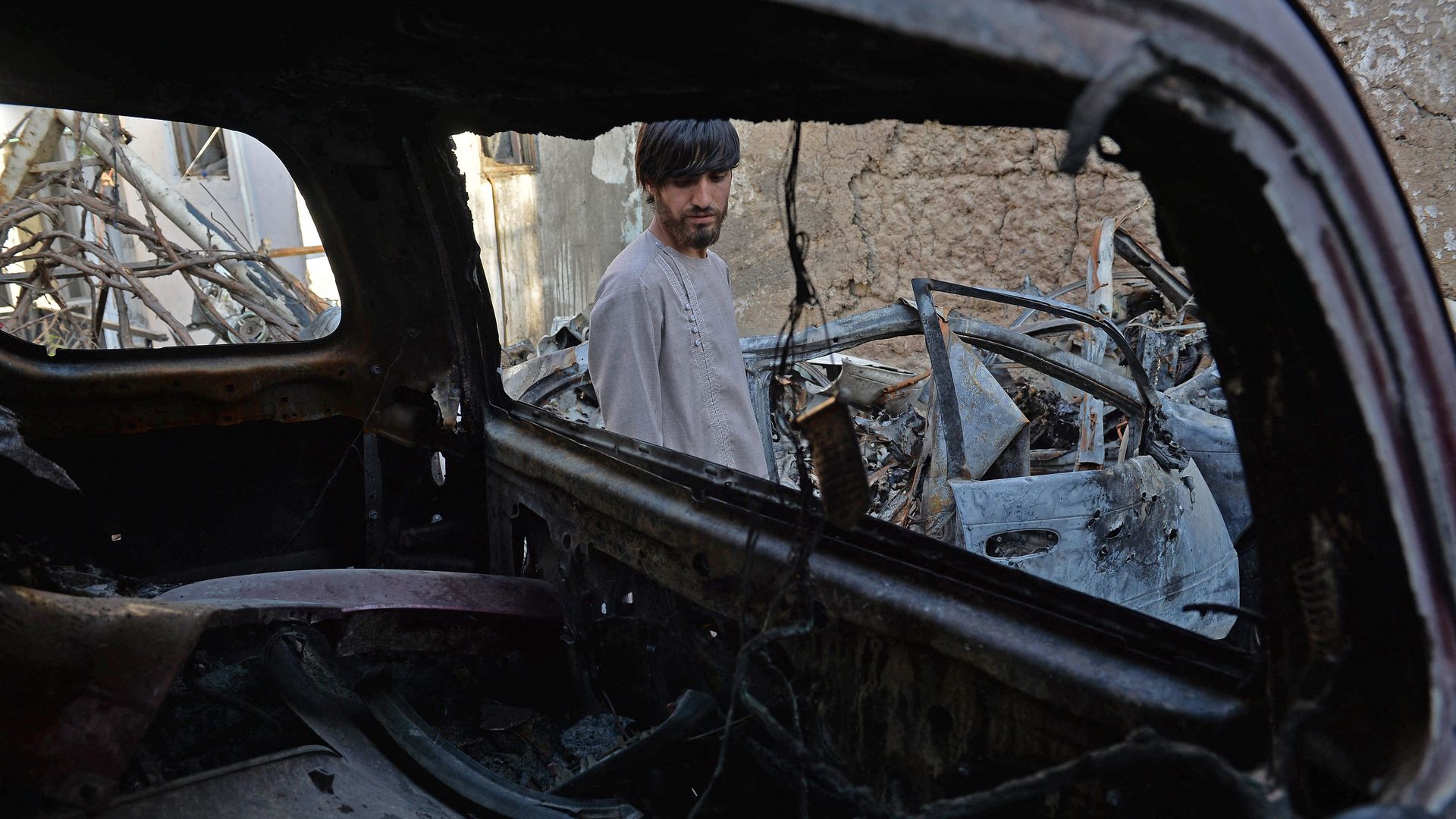Sep 18, 2021 - World
U.S. drone strike victims' families in Afghanistan seek compensation
Add Axios as your preferred source to
see more of our stories on Google.

A relative of Ezmarai Ahmadi, who was killed by a U.S. drone strike, looks at the wreckage of a vehicle Saturday that was damaged in last month's strike in the Kwaja Burga neighbourhood of Kabul. Photo: Hoshang Hashimi AFP via Getty Images
